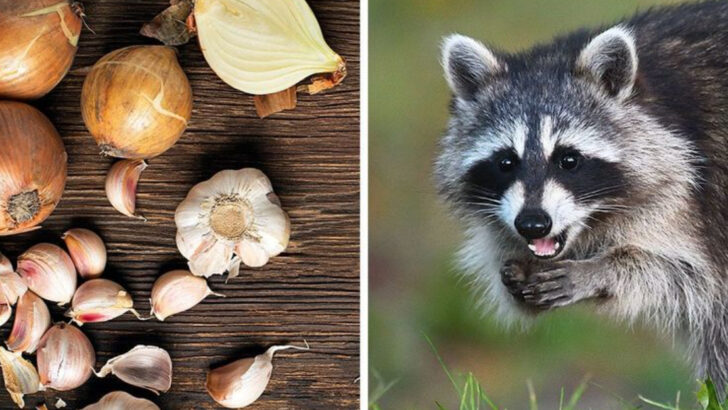Raccoons, with their masked faces and curious nature, are often unwanted visitors in our yards.
However, nature provides us with various scents that can deter these nocturnal creatures from invading our spaces.
Using these scents not only helps keep raccoons at bay but also offers an aromatic addition to your garden.
Here, we explore 11 effective scents that raccoons dislike and how they can be used to maintain a raccoon-free yard.
Peppermint

Peppermint, with its crisp and refreshing aroma, stands as a natural deterrent for raccoons. This scent can overpower a raccoon’s sensitive nose, making your garden less inviting. Consider planting peppermint around the perimeter of your yard or using peppermint essential oil-soaked cotton balls.
Arrange them strategically in places where raccoons tend to wander. Not only will your yard smell delightful, but these nocturnal visitors will think twice before entering.
Peppermint is easy to grow, making it a viable option for many homeowners. Furthermore, its robust nature ensures it thrives in various climates.
Cinnamon

Cinnamon, known for its warm and spicy scent, is not just for baking. This aromatic spice can be a powerful tool in your fight against raccoons. Place cinnamon sticks around your yard, especially near entry points.
You can also sprinkle ground cinnamon in areas where raccoons frequent. The scent is strong enough to mask food odors that might attract these critters, keeping your garden safe.
Over time, this natural method encourages raccoons to seek other locations. Its biodegradable nature means it’s safe for the environment too.
Ammonia

With a scent reminiscent of predator urine, ammonia sends a clear message to raccoons: stay away. Pouring small amounts around the perimeter of your yard can effectively discourage these animals.
For a more targeted approach, soak rags in ammonia and place them near trash bins or garden beds. Although not the most pleasant scent for humans, its effectiveness is undeniable. Use it sparingly to avoid overwhelming your space.
Regular reapplication maintains its potency, making your garden less attractive to unwelcome raccoon guests.
Garlic
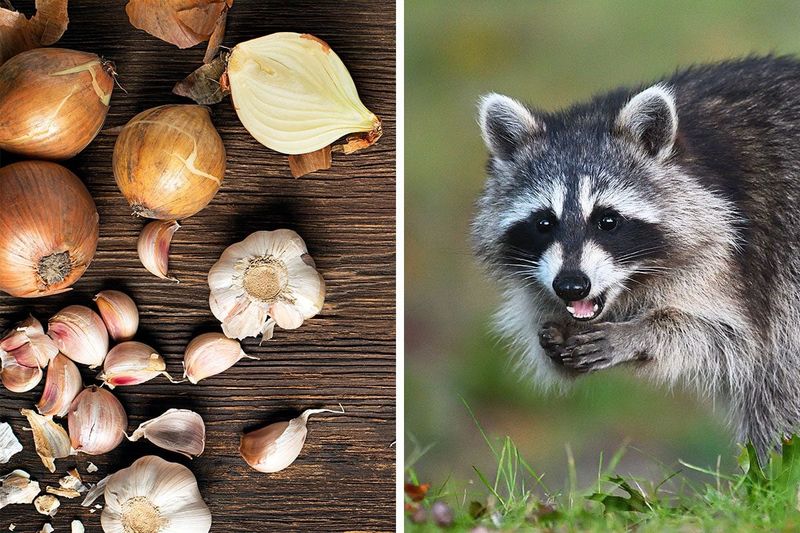
Garlic, with its pungent aroma, is a staple in various cuisines and a natural raccoon repellent. The strong scent disrupts a raccoon’s sense of smell, making it difficult to detect food. Crush garlic cloves and scatter them strategically around your yard.
Alternatively, a homemade garlic spray can be applied to plants and garden areas. This method not only deters raccoons but also adds a unique aroma to your garden.
Garlic is a versatile ally in keeping these nocturnal creatures at bay, offering both culinary and protective benefits.
Eucalyptus

Eucalyptus, with its distinct menthol scent, is more than just a medicinal plant. Its strong aroma effectively wards off raccoons, which find the smell overwhelming. Planting eucalyptus around your yard or using eucalyptus essential oil can create an unwelcoming environment for raccoons.
The versatility of eucalyptus allows you to use dried leaves or oil-infused rags in strategic locations. This method not only deters raccoons but also adds a fresh, clean scent to your outdoor space.
Plus, eucalyptus is known for its calming properties, adding another layer of benefit.
Lavender
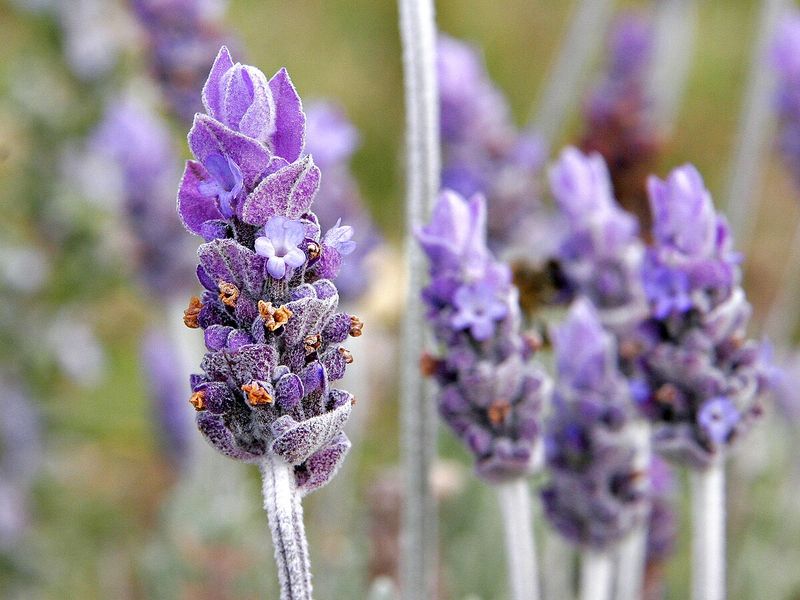
Lavender, celebrated for its soothing aroma, serves a dual purpose: relaxation for humans and repulsion for raccoons. The scent of lavender is too intense for raccoons, making it a perfect addition to your garden. Plant lavender bushes around your yard to create a natural barrier.
Additionally, lavender essential oil can be used on cotton balls or mixed with water as a spray. This vibrant plant not only beautifies your environment but also acts as a fragrant deterrent for unwanted raccoon visitors. Embrace lavender for its beauty and protective benefits.
Vinegar
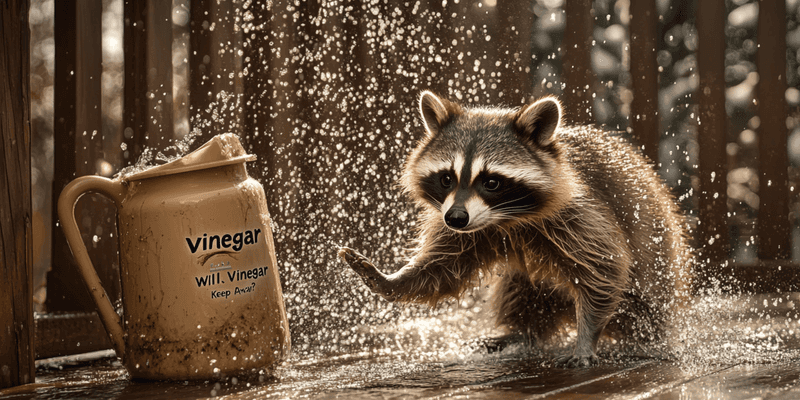
Vinegar, with its sharp and tangy scent, plays a significant role in deterring raccoons. Its strong aroma masks food smells, confusing raccoons’ sense of direction. Spraying vinegar around trash cans or garden edges can discourage these animals.
For a more concentrated effect, soak cloth strips in vinegar and hang them around the yard. Although the smell dissipates over time, regular application ensures continued protection.
Vinegar is a simple yet effective way to maintain a raccoon-free yard, proving that sometimes the best solutions are right in your pantry.
Citrus Peels

Citrus peels, with their fresh and zesty scent, are a natural raccoon deterrent. The aroma is pleasant to humans but overpowering for raccoons. Scatter citrus peels around your garden or near potential entry points to keep raccoons at bay.
This method is not only effective but also eco-friendly, as it recycles kitchen scraps. Over time, the peels decompose, enriching your soil while maintaining a raccoon-free environment.
Citrus peels offer a sustainable and aromatic solution to protect your yard from these curious critters.
Predator Urine
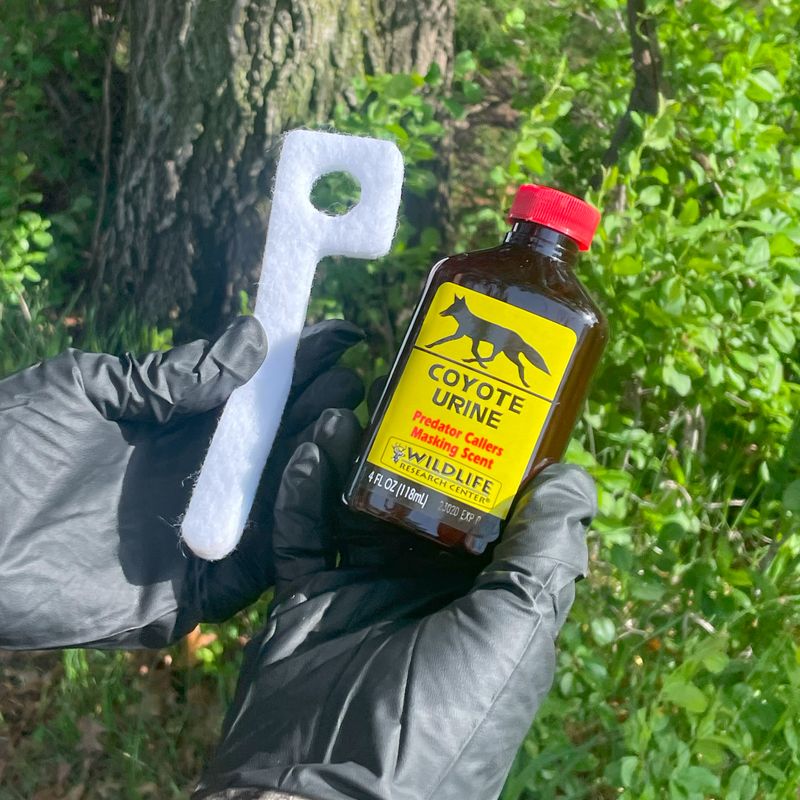
Predator urine, available from various outdoor retailers, harnesses the power of nature to deter raccoons. The scent signals danger, prompting raccoons to avoid areas where it’s present. Spraying it around the perimeter of your yard creates an invisible barrier.
While the idea might seem unusual, its effectiveness is well-documented. Use it sparingly, as a little goes a long way.
This method mimics natural predator-prey interactions, convincing raccoons to move on. A natural, instinct-based solution that’s both fascinating and functional.
Clove Oil
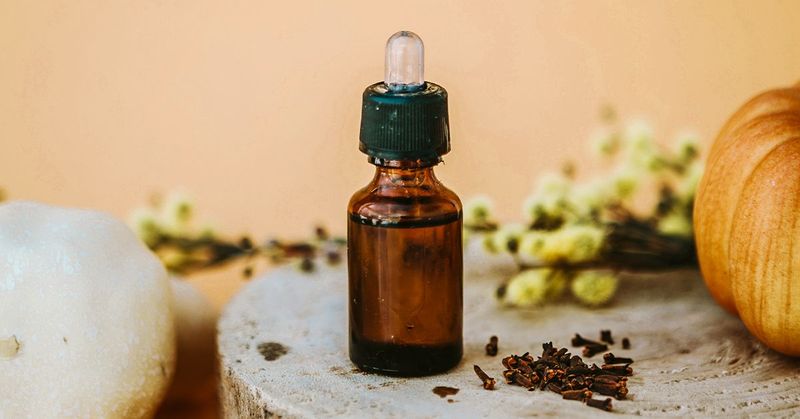
Clove oil, with its rich, spicy scent, is known for more than its culinary uses. Its intensity is unpleasant for raccoons, making it an effective deterrent. Mix clove oil with water to create a spray for garden areas, or use oil-soaked cotton balls at entry points.
This natural method not only repels raccoons but also leaves a warm, inviting aroma for humans. Clove oil’s potency ensures that a small amount can cover a large area, providing long-lasting protection.
A spicy yet effective way to maintain a raccoon-free yard.
Mint
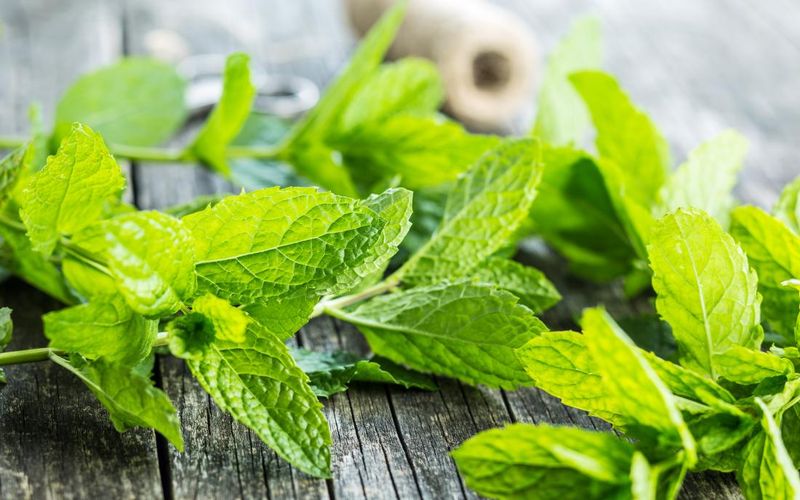
Mint, with its invigorating aroma, offers more than just culinary delight. This herb’s scent is overwhelming for raccoons, making it a perfect garden addition. Plant mint around your yard or use mint essential oil for a more concentrated effect.
The presence of mint creates an aromatic barrier, deterring raccoons from entering your space. Its rapid growth and ease of cultivation make it an accessible option for gardeners. Embrace mint not only for its refreshing scent but also as a natural safeguard against raccoons.

